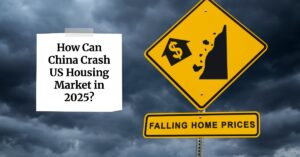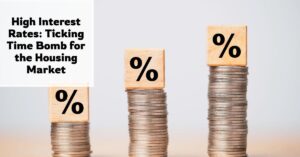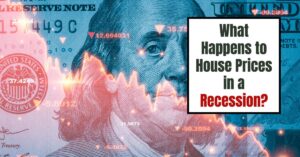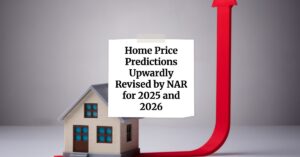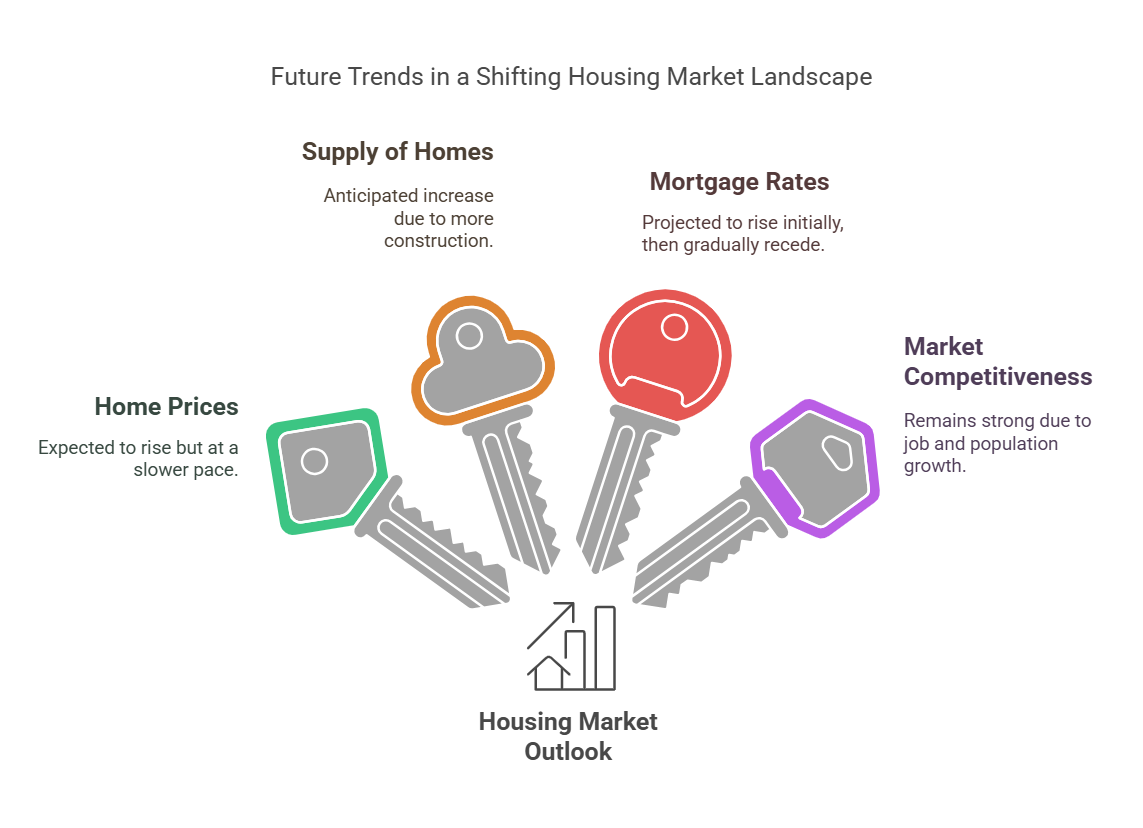Is the American dream of homeownership about to get a rude awakening, courtesy of China? The question of can China crash the US housing market in 2025 and how is a complex one that's been keeping economists and homeowners alike up at night. The short answer? It's unlikely that China alone can cause a full-blown crash.
While China’s economic actions, especially in response to tariffs, could make things tougher, a true crash would likely need a perfect storm of other economic disasters. Let's dig a little deeper to see exactly what's at stake.
Can China Crash the US Housing Market in 2025?
A New Trade War: Echoes of the Past?
Remember those trade wars from a few years back? Well, they are back and with a vengeance! During his second term, President Trump has slapped some seriously high tariffs on Chinese goods, some hitting a whopping 145%. The goal? To bring down trade deficits and tackle issues like illegal fentanyl entering the country. But China isn't backing down. They've fired back with their own tariffs, reaching up to 125% on certain U.S. products. Think of it like a game of economic chess where each move can have big consequences.
Now, this trade war isn't just about bragging rights. It can directly affect the US housing market, and here's how.
The Direct Hit: Higher Construction Costs
One of the most straightforward ways tariffs impact housing is through the cost of materials. Think about it – how much do you use materials in building a house? A lot!
- Imported Building Materials: A significant chunk of the materials used to build houses in the US come from China.
- Rising Prices: Tariffs drive up the prices of these materials, like steel, aluminum, and even appliances.
- NAHB Estimates: The National Association of Home Builders (NAHB) estimates that these tariffs can add thousands of dollars (between $7,500 and $10,000!) to the cost of building a single home.
This can create a ripple effect:
- Higher Home Prices: Builders may pass those costs on to buyers, making homes more expensive.
- Reduced Supply: Some builders might decide to build fewer homes altogether, tightening the housing supply.
Here’s a table illustrating how these tariffs are affecting the construction industry:
| Aspect | Details |
|---|---|
| China's Tariff on US Goods | 34% tariff on all US goods imports, effective April 10 |
| US Tariff on Chinese Goods | Trump threatened an additional 50% levy if China does not rescind its tariffs |
| Impact on Construction | 22% of imported building materials for residential construction come from China. |
| Total Construction Goods | $204 billion worth of goods used in new multifamily and single-family housing last year. |
| Imported Goods in Construction | $14 billion (7% of total) imported from outside the US. |
| Cost of Imported Materials per New Single-Family Home | $12,713 out of $174,155 total building materials |
| Expected Cost Increase | Tariffs could raise costs by over $3 billion for imported materials from China, Canada, and Mexico. Builders expect a $9,200 increase per home. |
Beyond the Bricks: Indirect Economic Impacts
It is not just the price of bricks and mortar that are affected. These trade disputes create economic uncertainty.
- Consumer Confidence: A shaky economy can make people less confident about buying a home.
- Recession Fears: If the trade war drags on, some experts worry it could trigger a recession.
Think of it this way: if people are worried about losing their jobs or if the economy looks uncertain, they're less likely to make a big purchase like a house.
Recommended Read:
Warning of a Weak Housing Market: Are We Headed for Another Crisis?
Fannie Mae Lowers Housing Market Forecast and Projections for 2025
Housing Market Forecast 2025 by JP Morgan Research
Housing Predictions 2025 by Warren Buffett's Berkshire Hathaway
China's Big Weapon: Mortgage-Backed Securities
Here's where things get a bit more complicated and where China could exert more influence. China holds a massive amount of US mortgage-backed securities (MBS), which are basically investments tied to home loans.
- What are MBS? These are bundles of home loans that are sold as investments.
- China's Holdings: China is one of the largest foreign holders of US MBS.
- The Threat: China could sell off these securities, flooding the market and driving up mortgage rates.
Why does this matter? Higher mortgage rates make it more expensive to borrow money for a home, which means fewer people can afford to buy.
Has China Already Started?
There is some evidence suggesting that China has been quietly reducing its holdings of US MBS. While this might not cause an immediate crash, it could signal a long-term strategy to put pressure on the US economy. I believe we should be aware of this.
However, it's not a Simple ‘Crash' Button
It's important to understand that even if China sold off a large chunk of its MBS, it wouldn't necessarily trigger a catastrophic crash on its own.
- Self-Inflicted Wound: Selling off those securities would also hurt China financially.
- Market Interventions: The US Federal Reserve or other big investors could step in to buy up those securities and stabilize the market.
So, Can China REALLY Crash the Market?
The bottom line is that China alone probably can’t trigger a full-blown housing market collapse just through tariffs or selling off MBS. A true crash usually requires a perfect combination of factors, such as:
- Severe Economic Downturn: A recession with widespread job losses.
- Collapse in Consumer Confidence: People losing faith in the economy.
- Other Unexpected Events: I cannot really predict this.
My Take and Final Thoughts
While I don’t think China can single-handedly crash the US housing market in 2025, I do think its actions can certainly make things tougher. Higher construction costs, rising mortgage rates, and increased economic uncertainty can all put a damper on the market.
The US housing market is a complex beast, influenced by a mix of domestic policies, global economic conditions, and plain old supply and demand. It's unlikely that China can simply press a button and make the whole thing fall apart. However, we should not underestimate the potential for economic disruptions and be prepared for challenges ahead. After all, being informed is the best defense!
Work with Norada, Your Trusted Source for Investment
in the Top U.S. Housing Markets
Discover high-quality, ready-to-rent properties designed to deliver consistent returns.
Contact us today to expand your real estate portfolio with confidence.
Contact our investment counselors (No Obligation):
(800) 611-3060
Also Read:
- Majority of Americans Fear Housing Market Will Crash in 2025
- Housing Market Price Forecast for 2025 and 2026 Increased by NAR
- Will the Housing Market Crash Due to Looming Recession in 2025?
- 4 States Facing the Major Housing Market Crash or Correction
- 5 Cities Where Home Prices Are Predicted To Crash in 2025
- New Tariffs Could Trigger Housing Market Slowdown in 2025
- Housing Market Forecast 2025: Affordability Crisis Will Continue
- Lower Mortgage Rates Will Reignite the Housing Demand in 2025
- NAR Predicts 6% Mortgage Rates in 2025 Will Boost Housing Market
- Housing Market Forecast for the Next 2 Years: 2024-2026
- Housing Market Predictions for the Next 4 Years: 2025 to 2028
- Housing Market Predictions for Next Year: Prices to Rise by 4.4%
- Housing Market Predictions for 2025 and 2026 by NAR Chief
- Real Estate Forecast Next 5 Years: Top 5 Predictions for Future
- Real Estate Forecast Next 10 Years: Will Prices Skyrocket?
